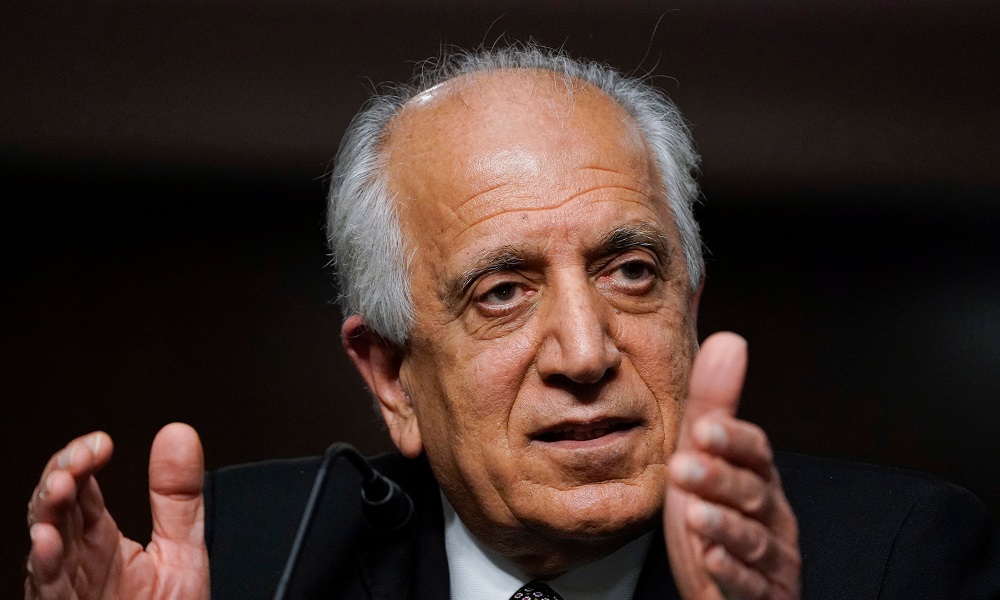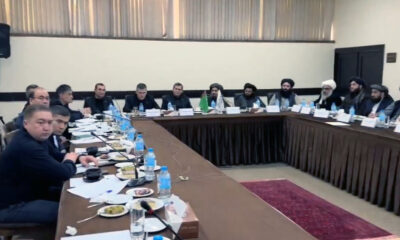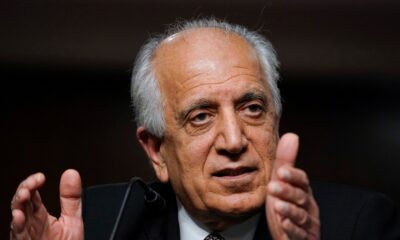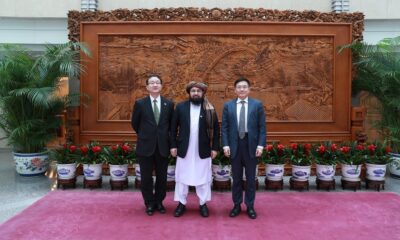Latest News
U.S. grants licenses for more aid flow to Afghanistan

The United States on Friday further paved the way for aid to flow to Afghanistan despite U.S. sanctions on the Islamic Emirate of Afghanistan (IEA), issuing general licenses amid concerns that Washington’s punitive measures could compound an unfolding humanitarian crisis.
The U.S. Treasury Department said it issued two general licenses, one allowing the U.S. government, NGOs and certain international organizations, including the United Nations, to engage in transactions with the IEA or Haqqani Network – both under sanctions – that are necessary to provide humanitarian assistance.
The second license authorizes certain transactions related to the export and re-export of food, medicine and other items.
“Treasury is committed to facilitating the flow of humanitarian assistance to the people of Afghanistan and other activities that support their basic human needs,” Andrea Gacki, director of the U.S. Treasury’s Office of Foreign Assets Control, said in the statement.
She added that Washington will continue to work with financial institutions, NGOs and international organizations to ease the flow of agricultural goods, medicine and other resources while upholding sanctions on the IEA, Haqqani Network and others.
The United Nations said that at the start of the year more than 18 million people – about half of Afghanistan’s population – require aid amid the second drought in four years.
U.N. Secretary-General Antonio Guterres said last week that Afghanistan is on “the verge of a dramatic humanitarian disaster” and has decided to engage the IEA in order to help the country’s people.
U.S. President Joe Biden’s administration has said it is committed to allowing humanitarian work in Afghanistan to continue despite Washington listing the IEA as a Specially Designated Global Terrorist group.
The sanctions freeze any U.S. assets of the IEA and bar Americans from dealing with them, including the contribution of funds, goods or services.
The licenses allow NGOs and foreign financial institutions to continue humanitarian assistance such as the delivery of food, shelter, medicine and medical services, including COVID-19 assistance, a Treasury spokesperson said.
“We have not reduced sanctions pressure on Taliban (IEA) leaders or the significant restrictions on their access to the international financial system,” the spokesperson said.
Latest News
Central Asian leaders are urging Pakistan to improve Afghanistan policies, says Khalilzad

Former U.S. envoy Zalmay Khalilzad has highlighted the strategic importance of Pakistan’s relationship with Afghanistan, noting that visiting Central Asian leaders are likely encouraging Islamabad to strengthen its policies toward Kabul.
In a post on X, Khalilzad emphasized that Central Asian nations have a strategic interest in access to Pakistan and beyond, including the sea, to support their trade and connectivity projects. He pointed out that these countries are particularly focused on developing railways, pipelines, telecommunications, and electricity networks linking Central Asia and Pakistan—a move he said would also serve Pakistan’s interests.
“Of course, Afghanistan’s role is vital to the goal of regional connectivity and development,” Khalilzad said. “Stability in Afghanistan and good Pakistan/Afghanistan relations are the absolute prerequisite.”
He suggested that the Central Asian leaders visiting Islamabad are urging improvements in Pakistan’s Afghanistan policies and expressed hope that Pakistani authorities would listen to these recommendations.
Pakistani officials have repeatedly claimed that Afghanistan-based militants have carried out recent attacks in Pakistan. Kabul denied the charge, saying it could not be held responsible for security inside Pakistan.
Trade between the two countries remains suspended following a deadly clash near the Durand Line in October.
Latest News
Latvia launches human trafficking investigation after Epstein file release

Latvia has launched a criminal investigation into potential human trafficking after the release of documents related to late U.S. sex offender Jeffrey Epstein that included references to Latvian model agencies and models, police in the Baltic nation said on Thursday.
The investigation, which also involves Latvia’s prosecutors and its Organised Crime Bureau, will centre on “the possible recruitment of Latvian nationals for sexual exploitation in the United States”, police said in a statement, Reuters reported.
It has asked potential victims to come forward.
Latvian President Edgars Rinkevics called for the investigation after the public broadcaster reported the Epstein documents included passport data and travel details for several Latvian women.
Eriks Neisans, head of the Natalie modelling agency mentioned in the documents, denied any knowledge of wrongdoing to the public broadcaster.
The U.S. Justice Department’s recent release of millions of internal documents related to Epstein has revealed the late financier and sex offender’s ties to many prominent people in politics, finance, academia and business – both before and after he pleaded guilty in 2008 to prostitution charges.
Latvia’s neighbour Lithuania has launched its own investigation into human trafficking earlier this week.
Latest News
Afghans among top asylum seekers in Russia in 2025, report shows

Afghan citizens were among the top three nationalities applying for asylum in Russia in 2025, according to new statistics reviewed by TASS. The figures show that 281 Afghan nationals submitted asylum requests during the year, placing Afghanistan in the third-highest position.
The data shows that Syrians ranked second with 3,196 applications. The highest number of requests came from Ukrainian citizens, who filed 3,332 applications in 2025—slightly lower than in previous years but still the largest group overall.
Uzbekistan (176 applicants) and Germany (129) also appeared among the top five nationalities seeking asylum in Russia last year. Overall, 8,220 foreigners applied for temporary asylum in 2025, an increase of 1,341 compared to 2024.
Temporary asylum in Russia grants legal residence, permission to work without a permit, access to medical care under compulsory insurance, travel documents, education opportunities, and financial assistance. It is also considered the first step toward securing a temporary residence permit and eventually Russian citizenship.
-

 Sport4 days ago
Sport4 days agoAFC Futsal Asian Cup 2026: Final eight confirmed
-

 Sport4 days ago
Sport4 days agoAfghanistan in new kit for T20 World Cup warm-up against Scotland
-

 Sport5 days ago
Sport5 days agoIran see off spirited Afghanistan to finish top of Group D
-

 Sport3 days ago
Sport3 days agoJapan trumps Afghanistan 6-0 in AFC Futsal Asian Cup quarter-final
-

 Sport2 days ago
Sport2 days agoHosts and heavyweights advance as AFC Futsal Asian Cup reaches semifinals
-

 International Sports4 days ago
International Sports4 days agoPakistan to boycott T20 World Cup group match against India
-

 Latest News5 days ago
Latest News5 days agoAfghanistan, Turkmenistan discuss TAPI, rail and power projects in Herat meeting
-

 Sport4 days ago
Sport4 days agoAfghanistan crush Scotland in ICC T20 World Cup warm-up

























